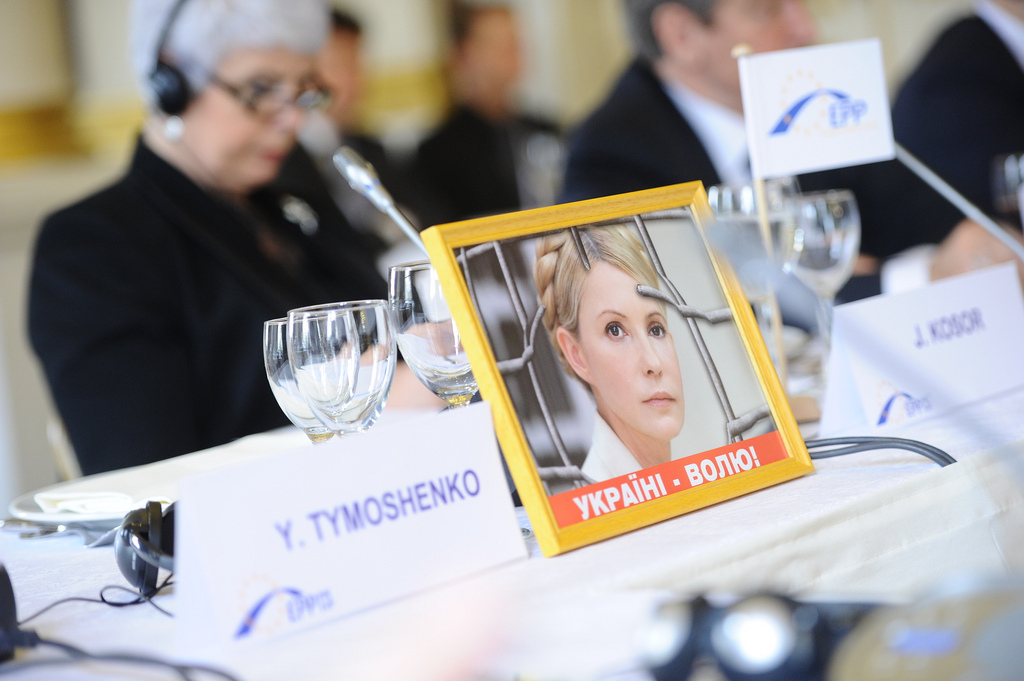Lutsenko’s Pardon – for international consumption
April 8, 2013 -
Josh Black
-
Articles and Commentary

6797704340_5b43441e27_b.jpg
The first analyses of President Yanukovych's decision to pardon Yuriy Lutsenko have rightly focused on the international implications of the decision. Aside from questions over Lutsenko's health, reports of a split amongst supporters of the president over the lack of progress on EU integration suggest that Yanukovych may have been pressured into making a gesture symbolising Ukraine's progress in the fields of human rights and criminal justice. So far the reaction from Brussels has been guarded but positive – the consortium of ministers in charge of external relations are aware that the pardon is meant as evidence of a change in attitudes, not deeper reform.
A bigger bang could have been made by releasing former prime minister, Yulia Tymoshenko, yet the president's statement made no mention of his long-time foe. That Lutsenko's imprisonment had been criticised by the European Court of Human Rights, while Tymoshenko's case has been dragged out, gives Yanukovych some cover for keeping Tymoshenko in prison, but the question remains, why is she considered so much more dangerous than Lutsenko?
The answer may lie in domestic politics. Yanukovych and Tymoshenko have long been estranged, but the roots of the president's grudge against Lutsenko go back to 2006. As then President Victor Yuschenko and Tymoshenko negotiated a coalition agreement, the Socialist Party sensationally announced that it would leave the Orange Coalition to support the appointment of Yanukovych as prime minister and a Party of Regions-backed government. Lutsenko rejected this shift and led a breakaway group that merged with Yushchenko's now-defunct party, Our Ukraine.
Releasing Lutsenko now might do more damage to the opposition than pro-government forces. Yanukovych may hope that he can split the opposition's vote in mayoral elections in Kyiv (for which there has been considerable public pressure), and perhaps even in the presidential elections in 2015. Indeed, some mysterious figure has already attempted to bounce UDAR into a statement of support or opposition to the prospect of Lutsenko becoming Mayor of Kyiv. The elections could be important if the government wants to retain the option of frustrating large scale public protests, or for the distribution of development permits to loyal supporters.
Tymoshenko's party, currently led by Arseniy Yatsenyiuk, and Vitali Klitchsko's UDAR party have been unable to agree on all but the most basic coordination of their activities. Both would like to become president – Klitschko has the charisma, Yatsenyiuk the parliamentary experience (and larger representation). The introduction of a third-candidate for leadership of the opposition would further distort the opposition's message and introduce an added element of competition.
Yanukovych's other great problem recently has been the repeated blocking of the Verkhovna Rada. Lutsenko's release will not in itself help resolve this, and the Party of Regions has resorted to attempting to hold separate sessions in secret locations – on shaky constitutional grounds. The best hope for Yanukovych may be that the public tire of the opposition's activities, but he will also have to resort to less crude methods of parliamentary manipulation than the stripping of Serhiy Vlasenko's parliamentary mandate.
The government's use of patronage and administrative resources to encourage defections amongst opposition factions has been a key weapon in the arsenal of the Party of Regions since the era of President Leonid Kuchma. In 2010 the almost unworkable “imperative mandate” (tying seats to parties and allowing their leaderships to replace disloyal deputies) was repealed. Between Yanukovych's election and the 2012 parliamentary elections, Tymoshenko's faction lost 56 deputies, some of whom became independents and some of whom joined the Party of Regions. Since the 2012 elections, five deputies have left Tymoshenko's faction but UDAR has proven more disciplined.
Pardoning Lutsenko may activate further parliamentary divisions by encouraging centre-left members of the opposition to consider forming yet another parliamentary faction aimed at enhancing their influence. The provision of official resources to each faction is a great incentive, and presidential hopefuls will be desperate for resources come 2015. Tymoshenko, a natural arm-twister and coalition builder, is seen as having the skills and tools to unite the opposition, since during periods of co-habitation with President Yushchenko she proved adept at convincing elements of Our Ukraine to join her faction. Lutsenko, on the other hand, is regarded by Yanukovych as an opposition-splitter. However, he brings less political baggage than Tymoshenko and also has an awareness of the broad range of characteristics demanded of a successful Ukrainian politician. Whether or not he has been underestimated, we shall soon find out.
Yanukovych's dreams of a fragmentary opposition depend heavily on the major personalities removing their egos from politics. The government's majority is itself not something that can be relied upon, especially if the country's poor economic conditions continue to limit the amount of pork that can be distributed to constituents. Yet the opposition know that their performance in the last parliamentary elections was unsatisfactory, and that campaigning against political repression is failing to mobilise the electorate. With the five years of infighting and instability that the Orange Revolution brought still fresh in the minds of the voters, Yanukovych may be gambling on an apparently united government remaining more attractive than a disorderly opposition movement.
Josh Black is studying for an MSc in Russian and Eastern European Studies at Oxford University, where he is also the editor of the blog Vostok Cable (www.vostokcable.co.uk or twitter @vostokcable). He has a special interest in Russian and Ukrainian politics since 1991.

































